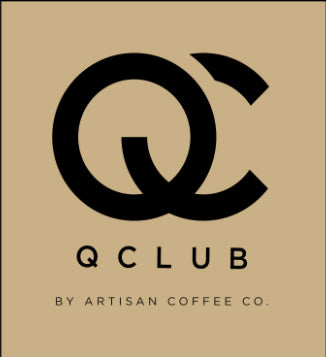Vegan milk alternatives have grown in popularity. In fact, according to a report, 1 in 3 people in the UK drink plant milk instead of dairy. But which alternative milk works best in coffee?

This guide breaks down the most popular plant milks and rates them on their taste, consistency and ability to froth and hold up latte art to help you decide which one is right for you.
Quick tip before we dive in - not every alternative milk brand works in coffee. We would always recommend buying barista-grade milks if you want to avoid curdling your brew!

Oat Milk
Oat milk is frequently touted as being one of the best milk alternatives for coffee in terms of taste and use. It has a creamy consistency which gives it a luxurious mouthfeel similar to whole milk.
It’s certainly a more indulgent alternative as it has the most calories and carbohydrates of all milk alternatives!
Oat milk tastes neutral enough that it doesn’t overpower the coffee. It’s a hit with baristas as its robust consistency allows it to steam up well without any unpleasant aromas. It holds latte art well too.
You can’t go wrong with Oatly Barista Edition, Alpro Oat Barista, fellow Great Taste winners Rude Health Oat or Minor Figures for a deliciously creamy coffee every time!

Soya Milk
The original vegan milk alternative is still one of the most popular in coffee. It has a protein content and flavour that’s similar to dairy, which makes it easy for baristas to use. Soya tends to be a solid dairy-free choice in most coffee shops.
Soya milk has a somewhat controversial environmental footprint. On the one hand, it’s one of the most sustainable milk alternatives by crop yield because it uses the least amount of water. On the other, the soybean industry is causing widespread deforestation across the globe.
But how does it stand up to home-brewed coffee? Despite having a similar protein content to dairy, soya milk isn’t a strong contender for best alt milk. This is because the proteins are sensitive to the lower pH of the coffee shot. The sad result is often split milk and lumpy brew.
That being said, you can find soya milk that’s stable enough in coffee. Alpro My Cuppa, although formulated for tea is versatile and a good choice as it’s creamy, and, most importantly, doesn’t split. Bonsoy steams well and has a glossy finish, but latte art proves challenging.

Almond Milk
Almond milk is another popular milk alternative with plenty of popular brands to choose from, including Rude Health Barista and Alpro for Professionals.
The unsweetened version is one of the healthiest mylks as it’s low in calories and sugar and packed with vitamin E and calcium.
Almond milk can be a little unstable in coffee because of its high acidity levels. Curdle alert! To avoid this problem, allow your espresso to cool slightly before adding it.
Another coffee adversary is the fat content which can give the milk a watery consistency and won’t hold latte art particularly well.

Pea Milk
A slightly more eclectic alternative, pea milk has a close resemblance to cow’s milk in its consistency. Contrary to what you might think, it isn’t green!
It’s made from yellow split peas, which have high protein levels, so it behaves like the dairy version.
Pea milk has a similar taste to dairy too. It’s neutral with a creamy mouthfeel, so there are no overpowering earthy or nutty flavours. It definitely doesn’t taste like peas either!
So what about frothing? Thanks to its high protein content, it’s possible to get a decent froth with pea milk. It can hold latte art, too, making it a strong contender for one of the best vegan milk alternatives on the market.
For barista-worthy pea milk brands, MIGHTY M.LKOLOGY Barista is your best bet. The vegan milk is made with a blend of yellow split peas, oats and a touch of coconut cream for a robust drink with excellent froth.

Potato Milk
Potato milk is one of the newest vegan milk alternatives on the scene, but it deserves a mention.
At the forefront of this vegan trend is the Swedish brand DUG. They’ve turned the humble potato into a nutrient-packed drink with a 75% lower environmental footprint than dairy. It’s also free from the 14 most common allergens.
DUG’s barista blend has a 3% fat content like whole milk. It has a thick consistency and creamy mouthfeel that can feel a little heavy. Despite that, it froths up well. It has a neutral taste that compliments the espresso and gives it a delicious rounded balance.
DUG Barista is a great choice for espresso-based drinks and speciality coffees. It even fares well in coffee-based cocktails and cold brews. The Swedish start-up is certainly one to watch!

The bottom line.
Choosing the best vegan alternative milk for your coffee depends on personal preference and taste. You need to consider the taste, consistency, creaminess, frothing ability and whether or not you’ll get the dreaded curdle.
If you’re looking for a plant milk that closely resembles dairy in every way, your safest bets are pea milk, oat milk and potato milk because they have high protein levels. Soya milk is a good option too.
If you’re interested in experimenting with flavours, try coconut or almond milks. For a healthier vegan milk in your coffee, go for hemp.
With so many dairy-free alternative milk options on the market, finding the ones you like can be overwhelming. Hopefully, this guide will put you on the right track!

Are you sure?
By not selecting to receive marketing communications you'll lose most of the benefits associated with the QClub
Oooops, that's annoying.
Unfortunately one off product can't be purchased at the same time as subscription or pre-order purchases.
Please proceed using separate transactions.
Unfortunately subscriptions can't be purchased at the same time as one-off purchases.
Please proceed using separate transactions.
Unfortunately, pre-order products have to be purchased on their own.
Please proceed using separate transactions.
